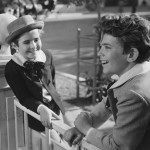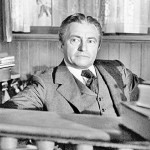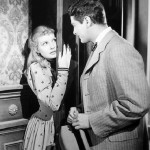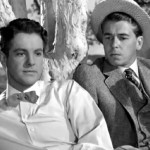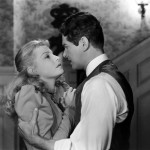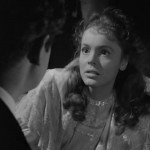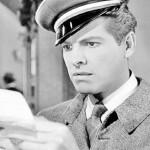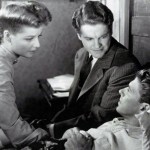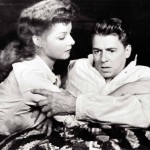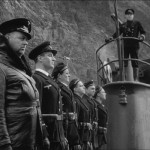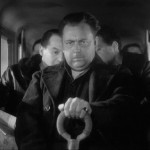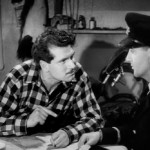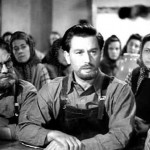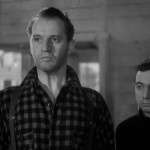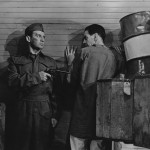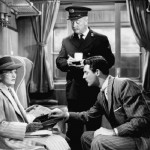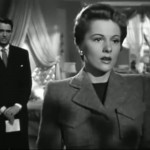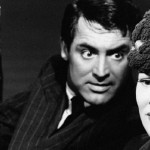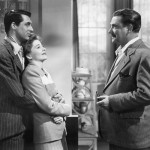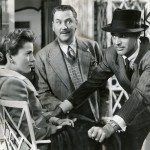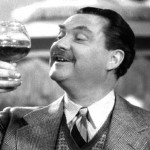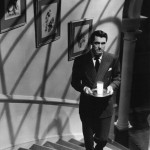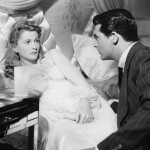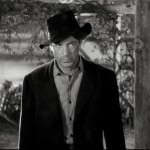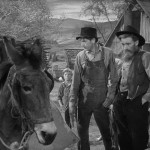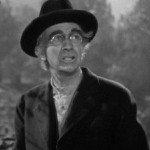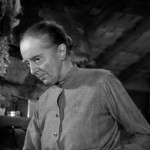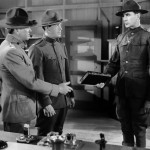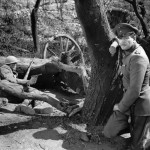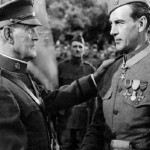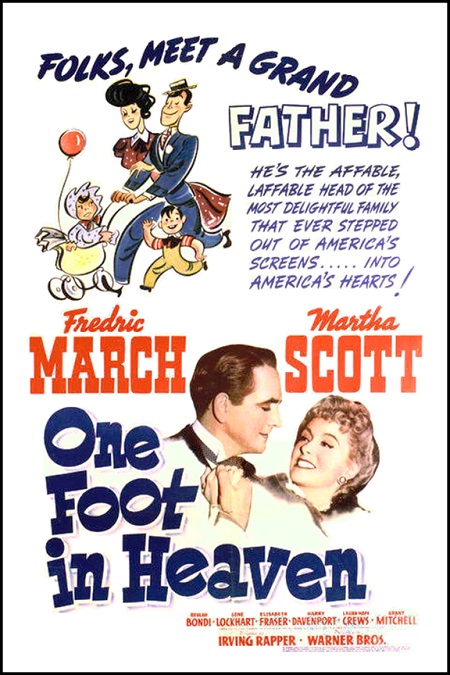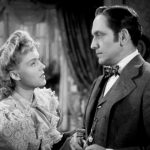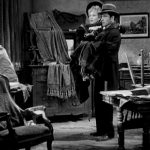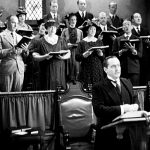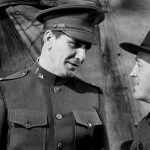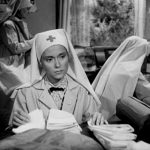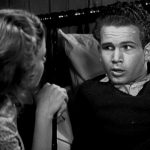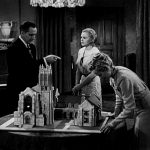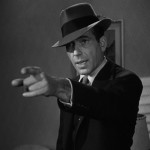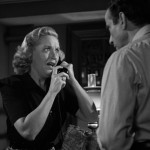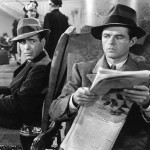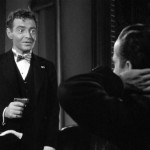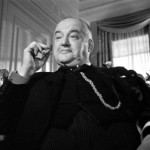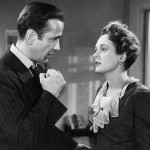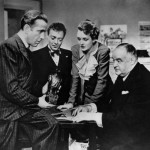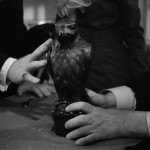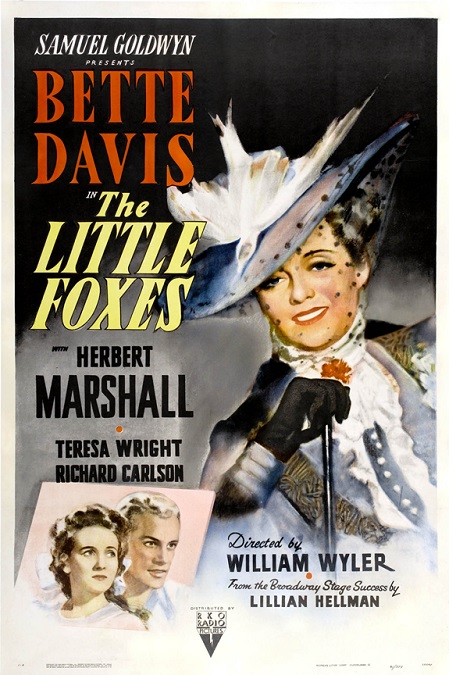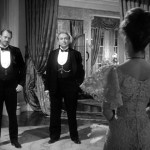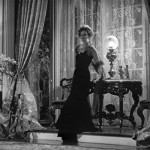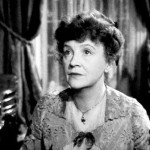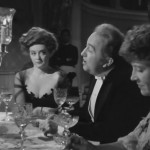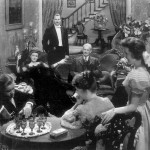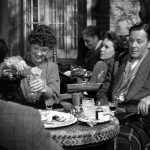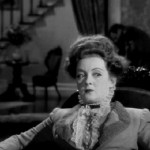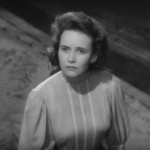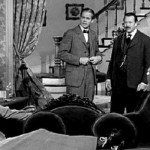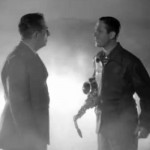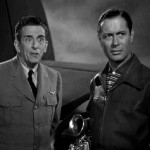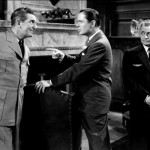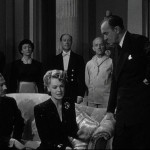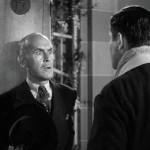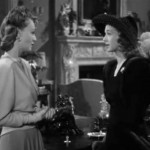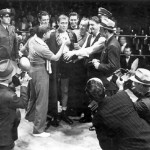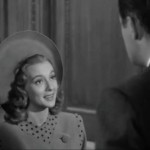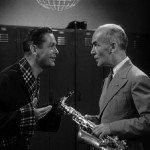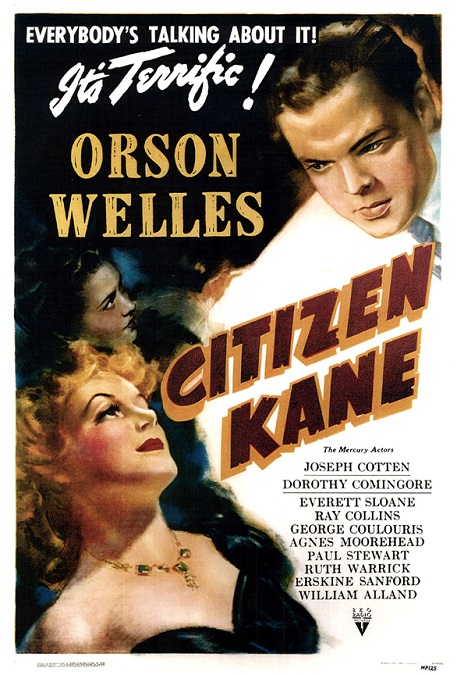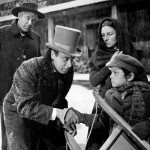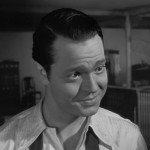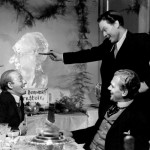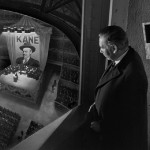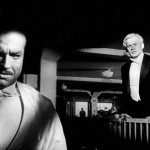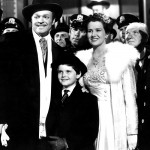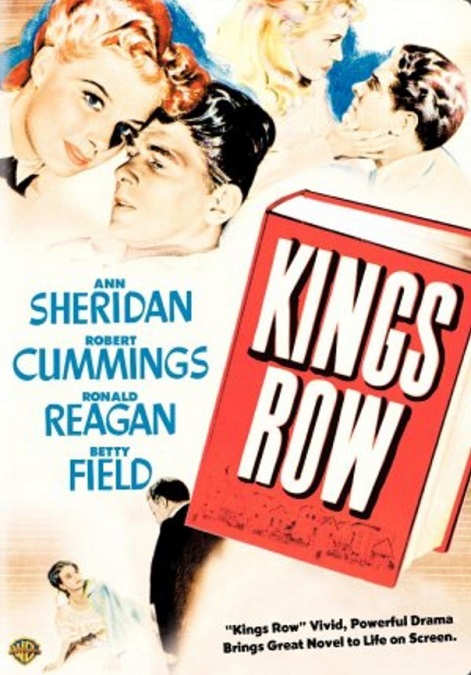
Kings Row – 1942
Ah, Kings Row, the town with its own special kind of crazy. Kings row was a movie that, on the surface, it is the story of a group of childhood friends that grow into adults. But the seeds of problems that are planted in the children come into flower as they mature. Specifically, the film focuses on five individuals – two boys and three girls.
The main protagonist is wunderkind Parris Mitchell, played by Handsome Robert Cummings. Super smart, super talented, and super nice to boot, Parris falls in love with deeply troubled Cassandra Tower, played by Betty Field. Parris’s best friend is Drake McHugh, a wealthy playboy, played by Ronald Reagan. At first, Drake’s big love interest is Louise Gordon, played by Nancy Coleman. But when her parents disallow the relationship, Drake turns to and falls in love with low-born, but beautiful, Randy Monaghan, played by Ann Sheridan.
What was actually wonderful about the characters was that they were each very well written. They were all genuinely nice people, especially the boys. They were honest, fine, upstanding individuals. They were good to each other and respectful to their superiors. They were easy to like, which in turn, made the movie easy to like. But life is not always fair. Sometimes, bad things happen. Sometimes, bad people do bad things, and sometimes plain bad luck strikes.
But here is why I say that Kings row is a town with its own kind of crazy. There was some evil and sadistic things happening around this small group of incredibly nice people. These are things that, honestly, the movie did not, and could not, do a sufficient job of fully explaining. The pesky Hayes Code took a very controversial novel that had some very seedy aspects, and watered it down so much that the underlying dirt was made virtually invisible. If it hadn’t, I don’t know if audiences of the 1940s would have loved is so much, though by today’s standards, it would have been a fantastic drama.
First of all, Cassandra’s father, Dr. Tower, played by a favorite of mine, Claude Rains, seemed to be a benevolent father figure to the naïve Parris. But when Cassandra was very young, he mysteriously took her out of school and kept her locked behind closed doors, allowing her virtually no contact with the outside world. The film never really explained why. It implied that she showed signs of dementia, like her deceased mother. But when Parris started seeing her behind her father’s back, she turned out to be crazy and frantic, the kind of crazy that was a step away from a straight-jacket. She was desperately afraid of her father. My research told me that in the original novel, her father had been habitually molesting her since her mother’s death. Ah, now it makes so much more sense!!
Then there was something that I got a sense of while watching the film, but I dismissed it as an innocent 1940s sensibility. There were a few scenes between Parris and Drake that looked a little more intimate than best friends. But come to find out, the novel had a definite homosexual theme that I believe could only have existed in that particular relationship. But the Hayes Code said “Not on our watch!”
The novel also portrayed Drake’s character as more sexually promiscuous than the film. The movie implied it, but was never explicit about it. And finally, there was the euthanization of Parris’s grandmother, beautifully played by Maria Ouspenskaya, carried out by Parris, himself. The Production Code Authority, which administered the Hays Code, once again said “For the good of the movie-going public, we say no!”
But the one that the movie got away with was the sadistic butcher of a doctor who performed unnecessary operations to fulfill his own sense of justice or possibly even to satisfy a sick passion. He was Louise’s father, Dr. Gordon, a man who didn’t approve of Drake as his daughter’s love interest. So when Drake was mildly injured, he amputated both of his legs, making him an invalid for the rest of his life.
Reagan actually turned in a spectacular performance, one that turned him into an overnight success. He was all set up for super-stardom as a Hollywood actor, but it just so happened that he was drafted into the U.S. Army to fight in WWII. Most critics say that Kings Row was the best performance of his career, not counting his Presidency.
